Note to self: buy a new version of Six Chapters of a Floating Life, translated by Lin Yutang, the "last traditional Chinese scholar".
Like the classic to which the title alludes, these teas are hand-selected examples of humble, instructive experiences. I rather like them. They lack the grandiosity of the Imperial-class star destroyers, but not every tea has to destroy stars.
Like the classic to which the title alludes, these teas are hand-selected examples of humble, instructive experiences. I rather like them. They lack the grandiosity of the Imperial-class star destroyers, but not every tea has to destroy stars.
Let us begin with the 2012 Yunzhiyuan "Zhupengzhai". All of today's teas come from 2012, and all are made by Big Scott of Yunnan Sourcing. (I should note in the interests of fairness that Scott was kind enough to provide all of these samples without charge.)
"Zhupeng" is a charming name for a village: it refers to the bamboo awnings or rooves of small buildings, and therefore has an immediately rustic feeling to it, which reminds me of Six Chapters. This village neighbours Mangfeishan and Wujiazhai, in a region from which Scott made several cakes over the past few years. I enjoy these "travelling tastes" of places around Yunnan. I don't recall seeing a cake from this particular village before.
"Zhupeng" is a charming name for a village: it refers to the bamboo awnings or rooves of small buildings, and therefore has an immediately rustic feeling to it, which reminds me of Six Chapters. This village neighbours Mangfeishan and Wujiazhai, in a region from which Scott made several cakes over the past few years. I enjoy these "travelling tastes" of places around Yunnan. I don't recall seeing a cake from this particular village before.
The heavy yellow-orange of Yongde leaves is before us. Again, the fruity scent, but here it is lower and more buttery-sweet than I would expect for this region. This is vivid, cooling, and smooth - my journal has "rounded and comfortable". The actual flavour is not dominant, but the mouthful of texture, cooling sensations, and long kuwei [good bitterness] is very pleasant.
Perhaps unfortunately, the 2012 cake from neighbouring Mangfeishan that Scott made is still in my mind, and this Zhupengzhai cannot live up to such an exalted neighbour. At $21 / cake, it is not well-priced, but the Mangfeishan cake is too much of a bargain to resist.
Perhaps unfortunately, the 2012 cake from neighbouring Mangfeishan that Scott made is still in my mind, and this Zhupengzhai cannot live up to such an exalted neighbour. At $21 / cake, it is not well-priced, but the Mangfeishan cake is too much of a bargain to resist.
Not suffering by comparison, the next cake is the 2012 "Mushucha", referring to the "mother trees" of the Bingdao region, near Mengku town, in Shuangjiang county of Lincang prefecture. Scott often sells "Nanpozhai" cakes from near Bingdao, whereas his actual Bingdao cakes go by the "Mushucha" name.
I narrowly avoided buying the 2011 version of this cake, which was everything you might hope for in Bingdao tea - famous for its icy chill, given its name ["ice island"]. I found it to be a touch citric, but controllable with care.
The scent in the aroma cup for this 2012 version is big and fruity, rading rapidly. A feeling of freshness is suggested by the bright yellow colour of the soup, which oxidises quickly to give the orange shown above. As expected, it opens with a good grassiness, then rapidly fills the mouth with the icy, cooling characteristic for which leaves from Bingdao are famed.
The granary base of Lincang becomes more obvious in later infusions. It does not endure in the mouth, but instead gives way to Bingdao iciness. The high caffeine level hits rather hard after several days of brewing "pengdahai" [a caffeine-free infusion of sorts, literally "fat big ocean"].
On the lips and tongue, an obvious numbess. The breath is cool, like a mint. This all-over iciness suggests that it is the comfortable sensation from good old Bingdao, rather than the nasty taste of pesticide - the two are distinct. $72 seems rather a high price for this, although there is sufficient content to keep the attention. Brewed carefully, the kuwei does not overpower its body, which remains quite thick.
Fruity, grassy, with a granary base, it is actually rather good. The bitterness helps it, to a degree. I found thast "it is very similar to the 2011".
On the lips and tongue, an obvious numbess. The breath is cool, like a mint. This all-over iciness suggests that it is the comfortable sensation from good old Bingdao, rather than the nasty taste of pesticide - the two are distinct. $72 seems rather a high price for this, although there is sufficient content to keep the attention. Brewed carefully, the kuwei does not overpower its body, which remains quite thick.
Fruity, grassy, with a granary base, it is actually rather good. The bitterness helps it, to a degree. I found thast "it is very similar to the 2011".
The winner for the teas described in this article (taken over the course of about a week) is definitely the 2012 Xinbanzhang...
This sells for a touch more than the Bingdao cake, at $78 / 400g, and is probably worth the outlay. I am pleased to see that the cake is not labelled "Laobanzhang", as so many cakes from the region claim to be. Xinbanzhang is known for being a touch more bitter than tea from its nearby, older cousin.
It is a fine tea: it is stable, broad, slightly cooling, with clean sweetness that sits well on the tongue. It has the heavy grapes-and-leather scent of teas from this region. It is a sharp contrast to the precision of the Bingdao cake, and I fall in love with pu'ercha all over again, such is its complexity. There is always so much to learn, and its study - learning by tasting - is so very satisfying...
It holds together well for a long session, and (as pictured above), I wrote that it is "a charming tea". To some, it may even be worth the cost, particularly to those building a collection. Scott's single-mountain cakes are an excellent opportunity for study.
Thanks to Scott for samples of these three teas, each enjoyable in their own way, and each representative of the quirks of their respective region.
Thanks to Scott for samples of these three teas, each enjoyable in their own way, and each representative of the quirks of their respective region.

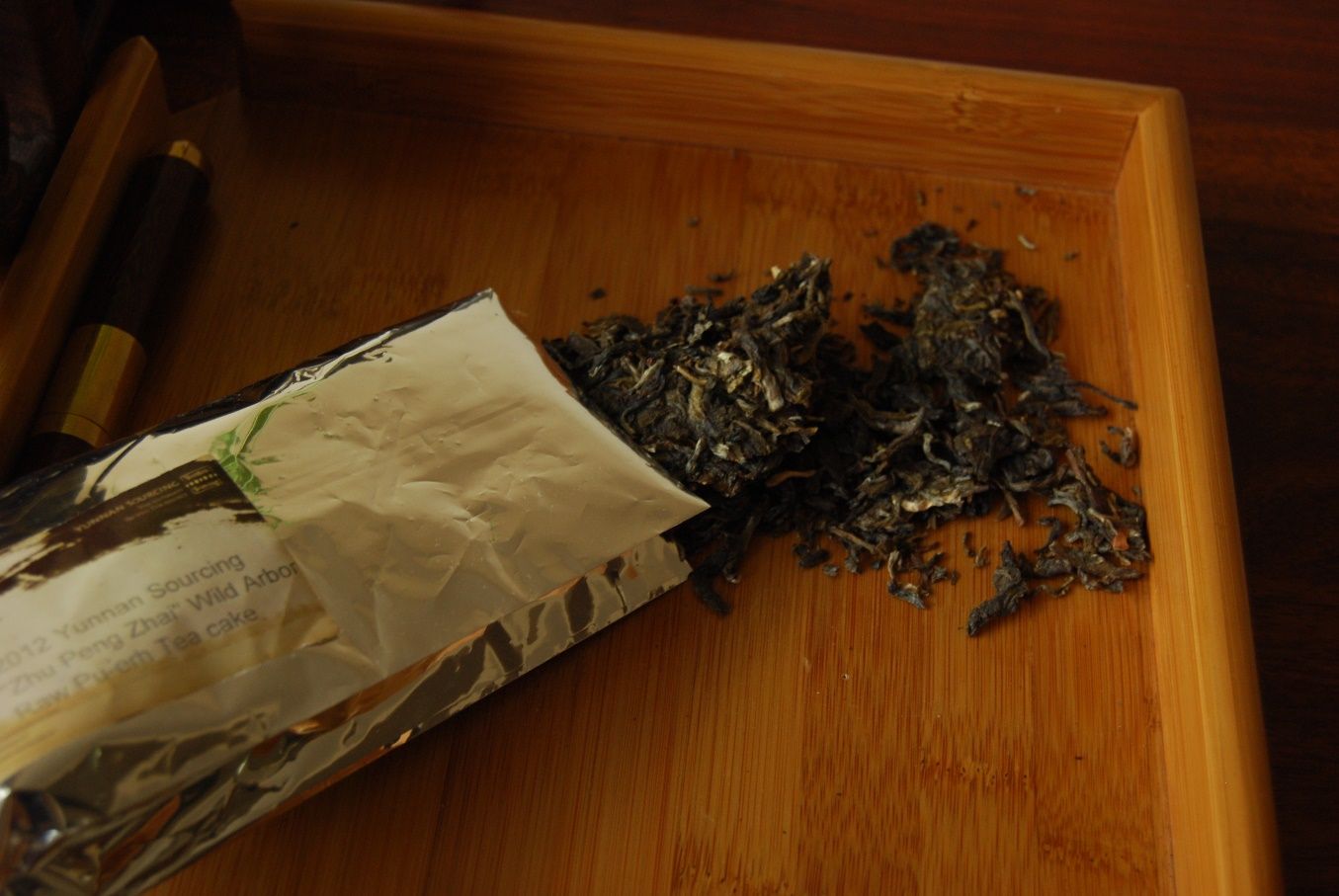
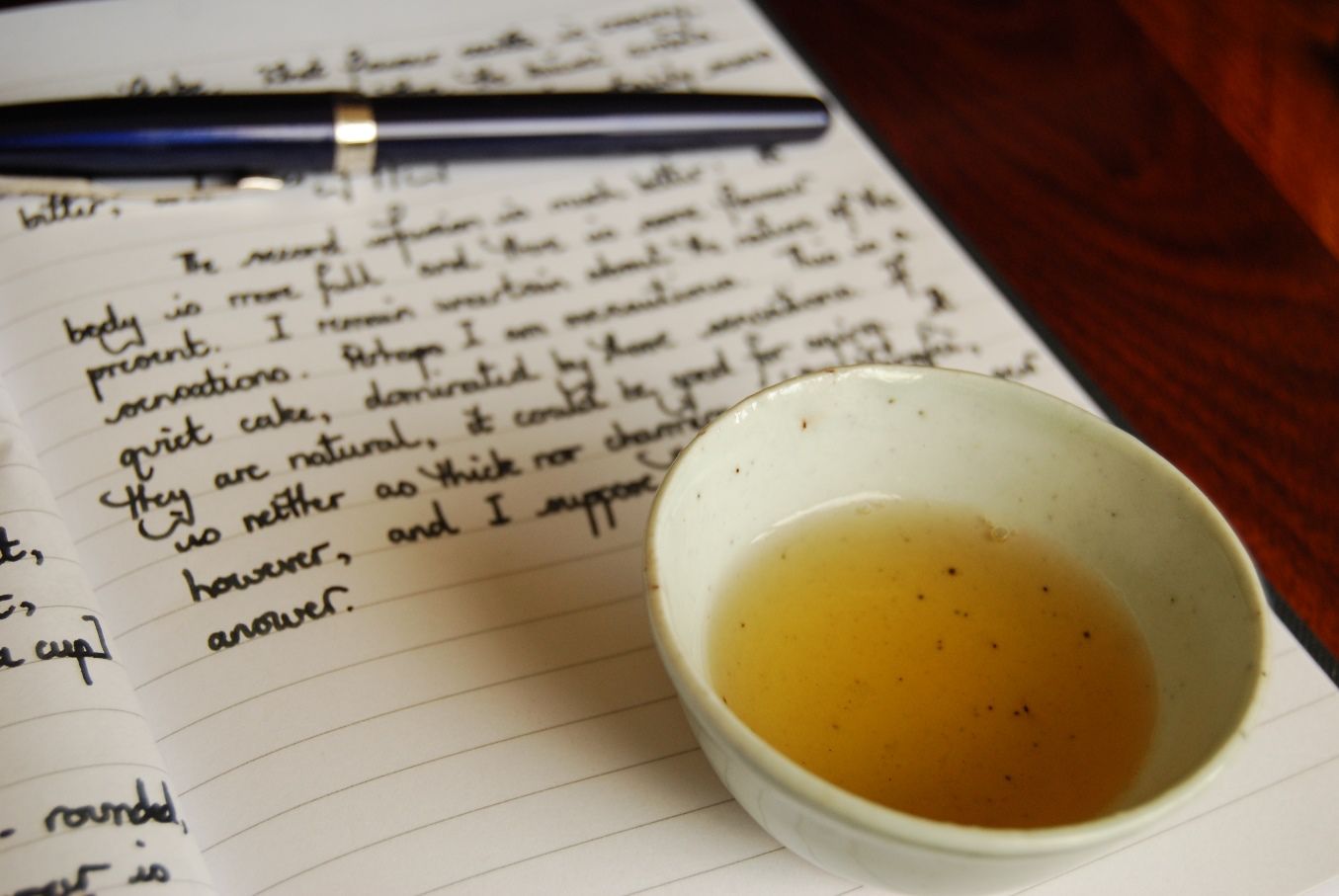

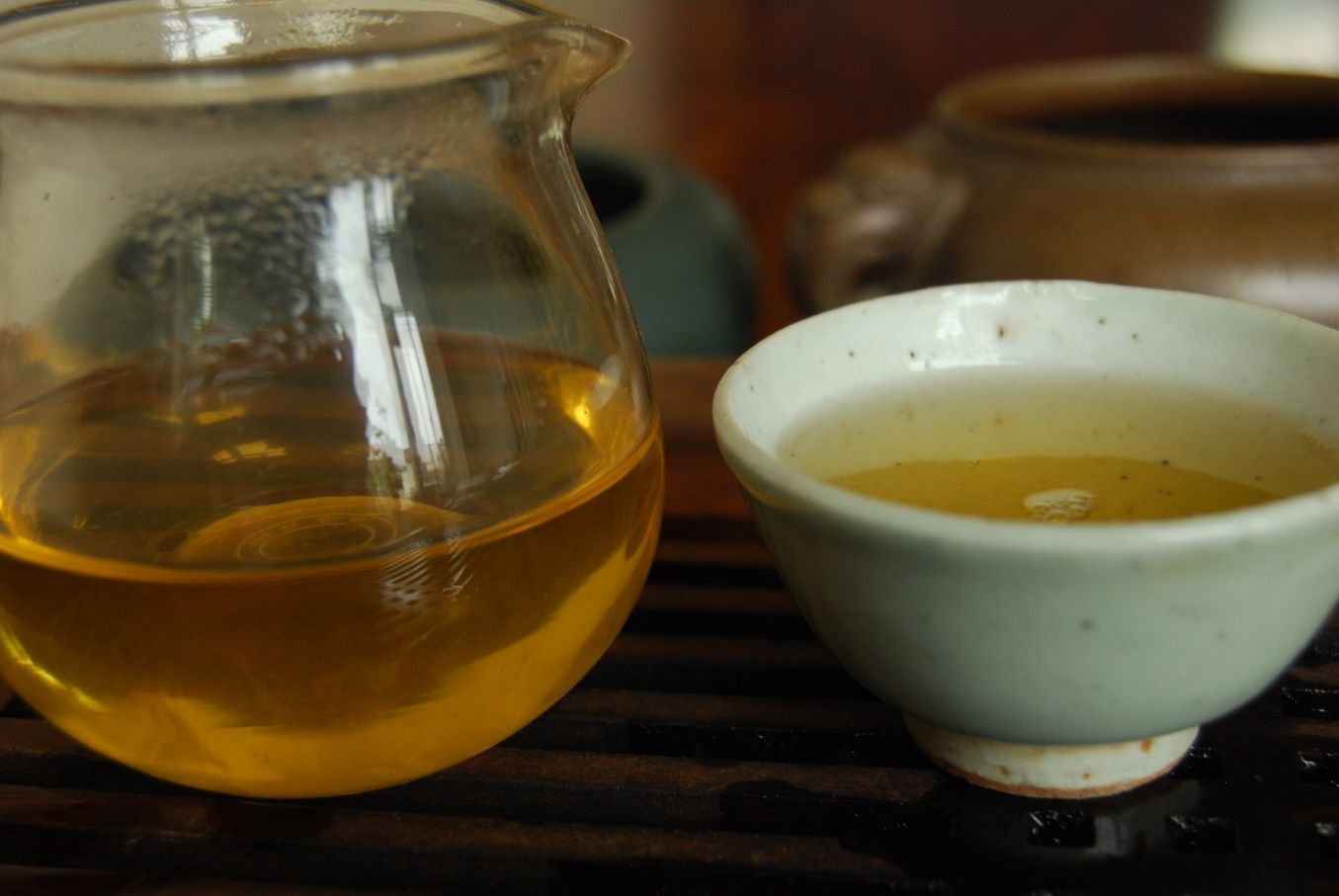
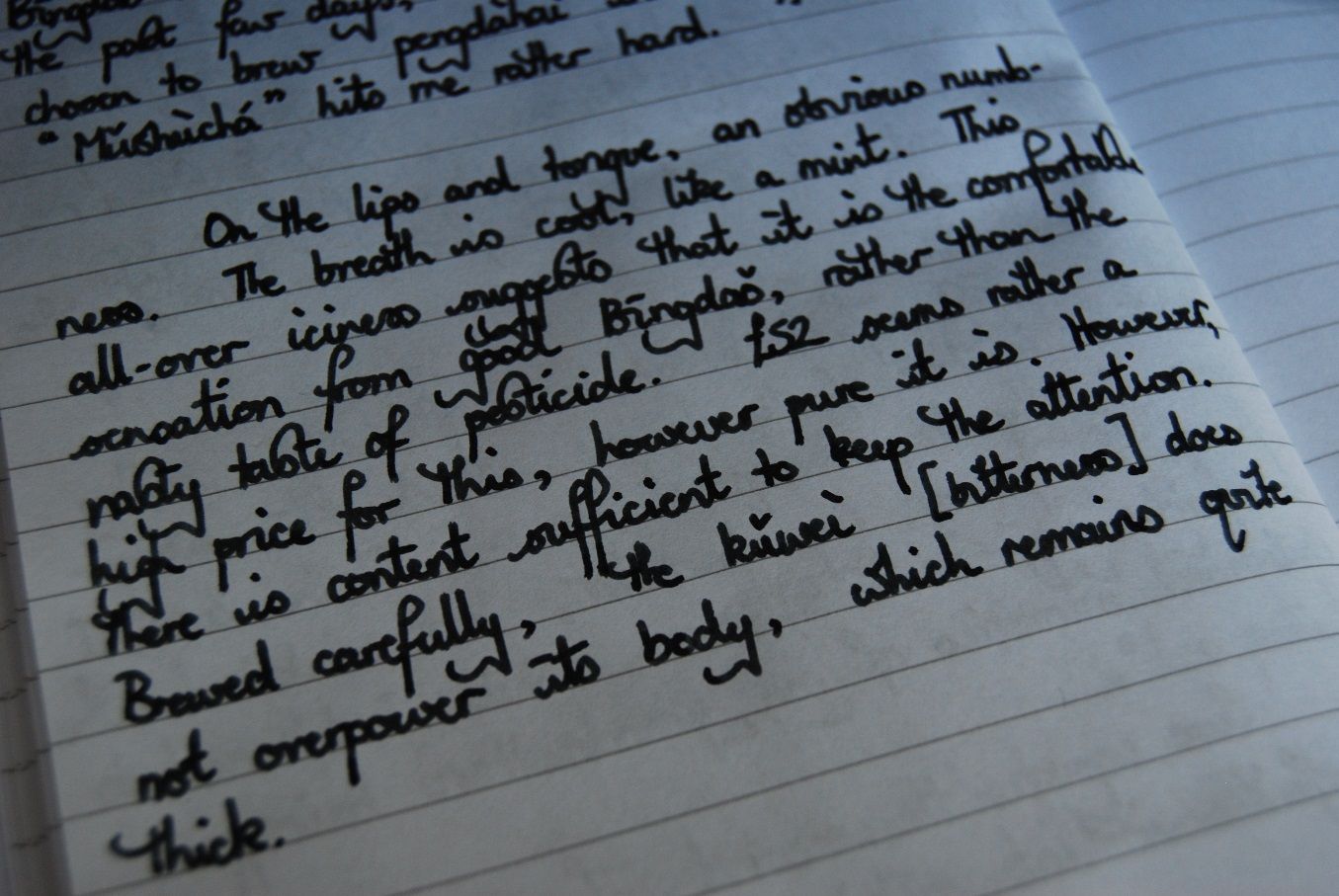
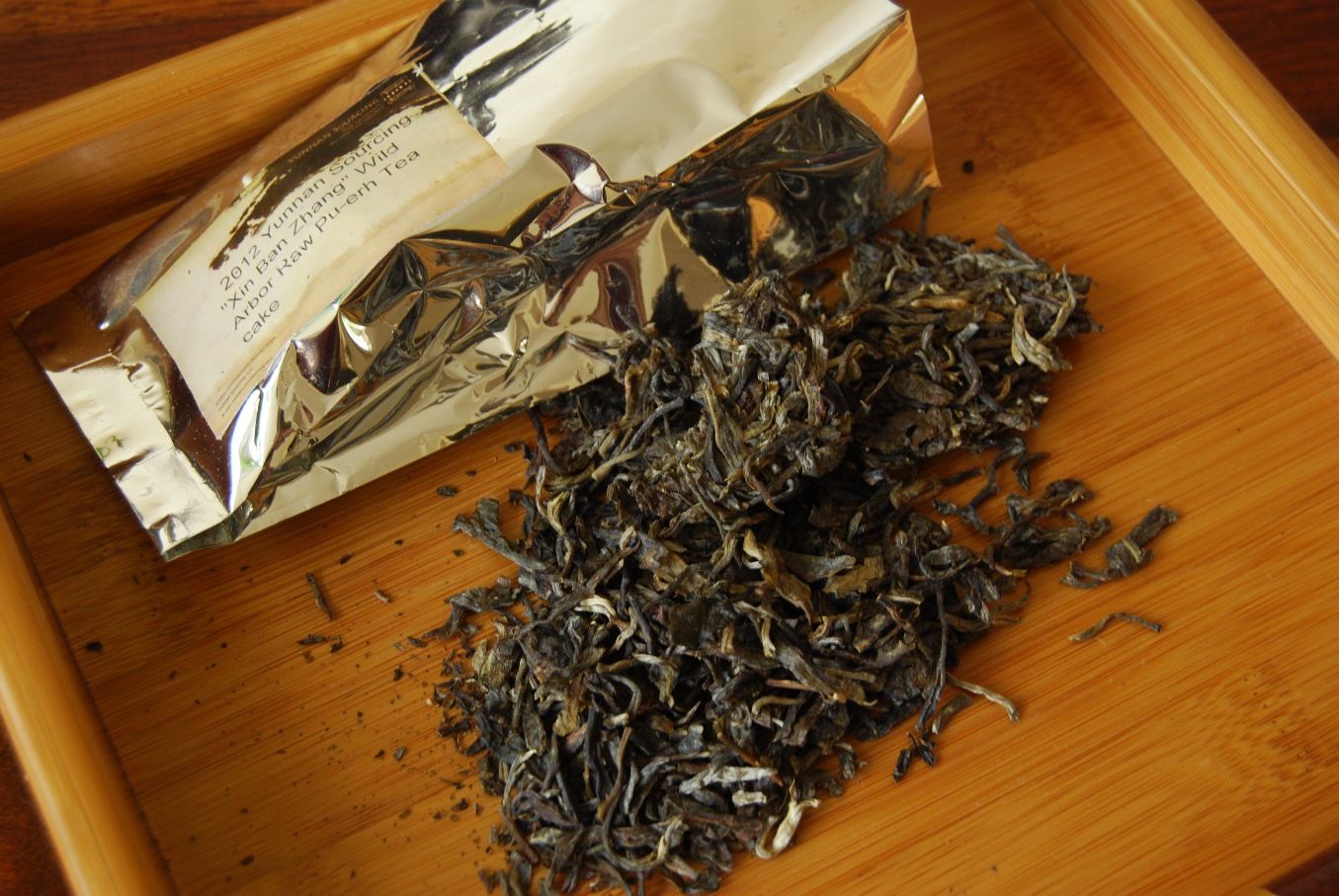
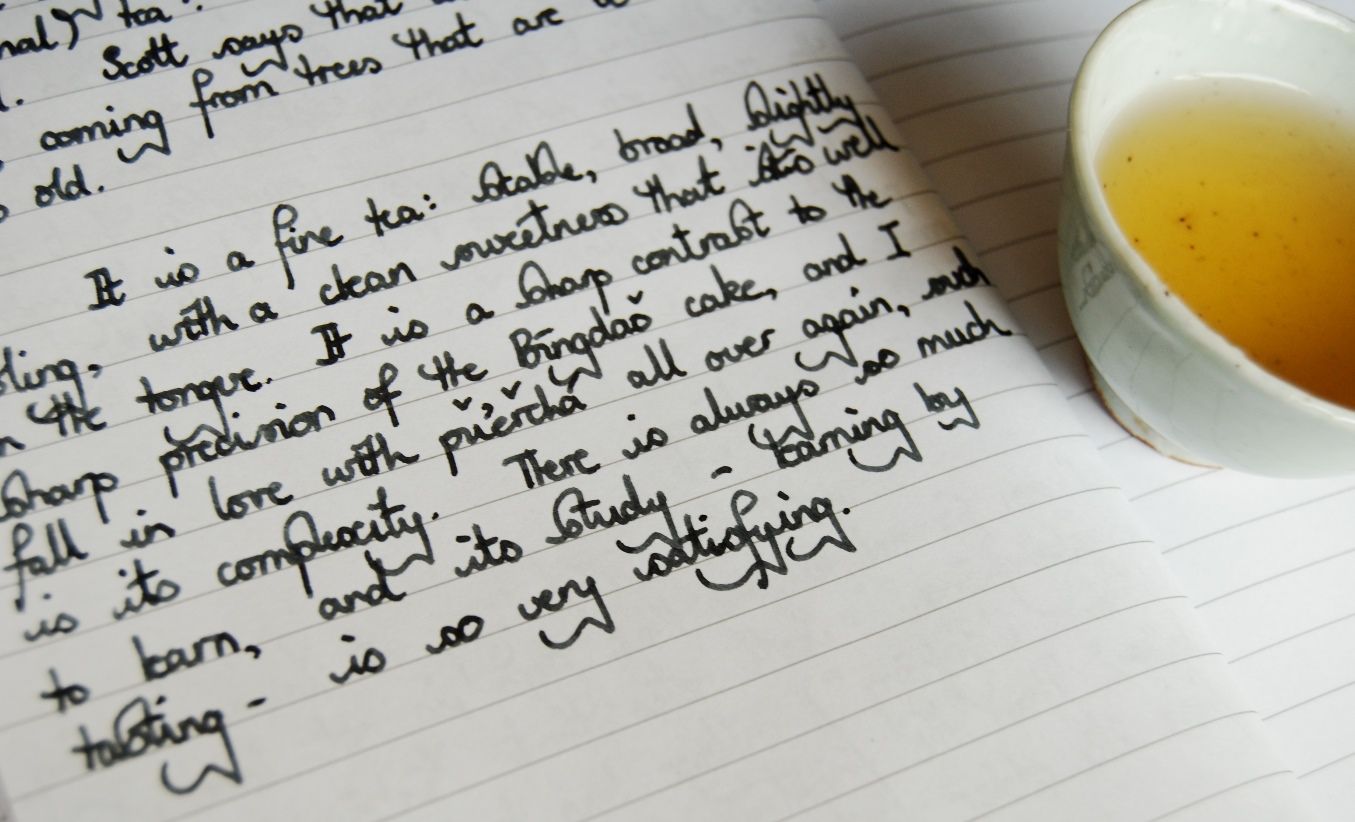
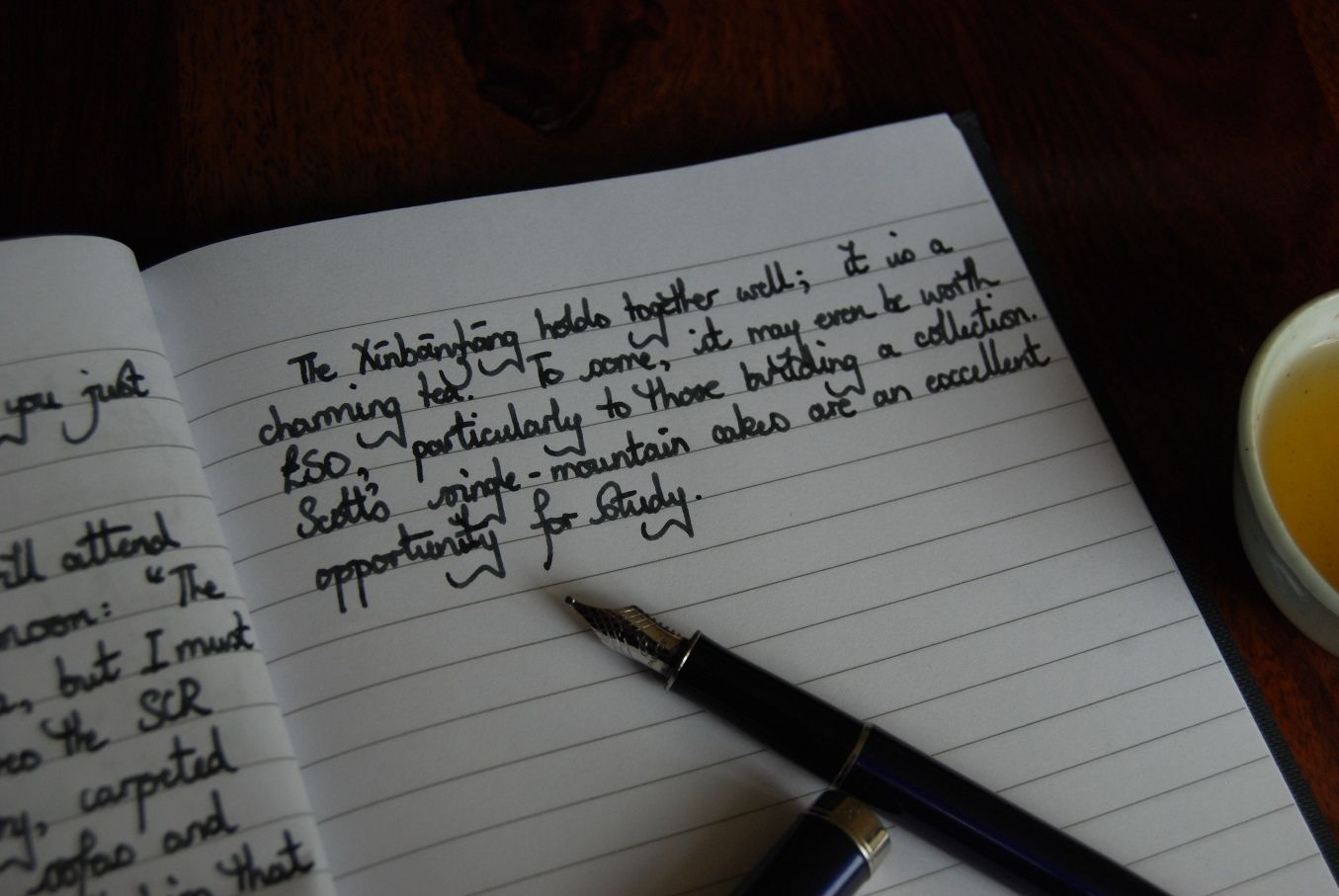
3 comments:
Dear Hobbes,
Lin Yutang. I read "The Importance of Living" a while back and loved it. It gave me a better insight into Chinese culture which I am sure we both have an affection for.
Peace,
Charles
I just put up a sketch of the 2011 mushucha. Icy indeed!
Lin Yutang has a calm spirit the writings of which seem quite timeless. There are few books that I read in translation more appealing than his.
Sketchandtea - I did enjoy your image! Please keep up the excellent work!
Toodlepip,
Hobbes
Post a Comment